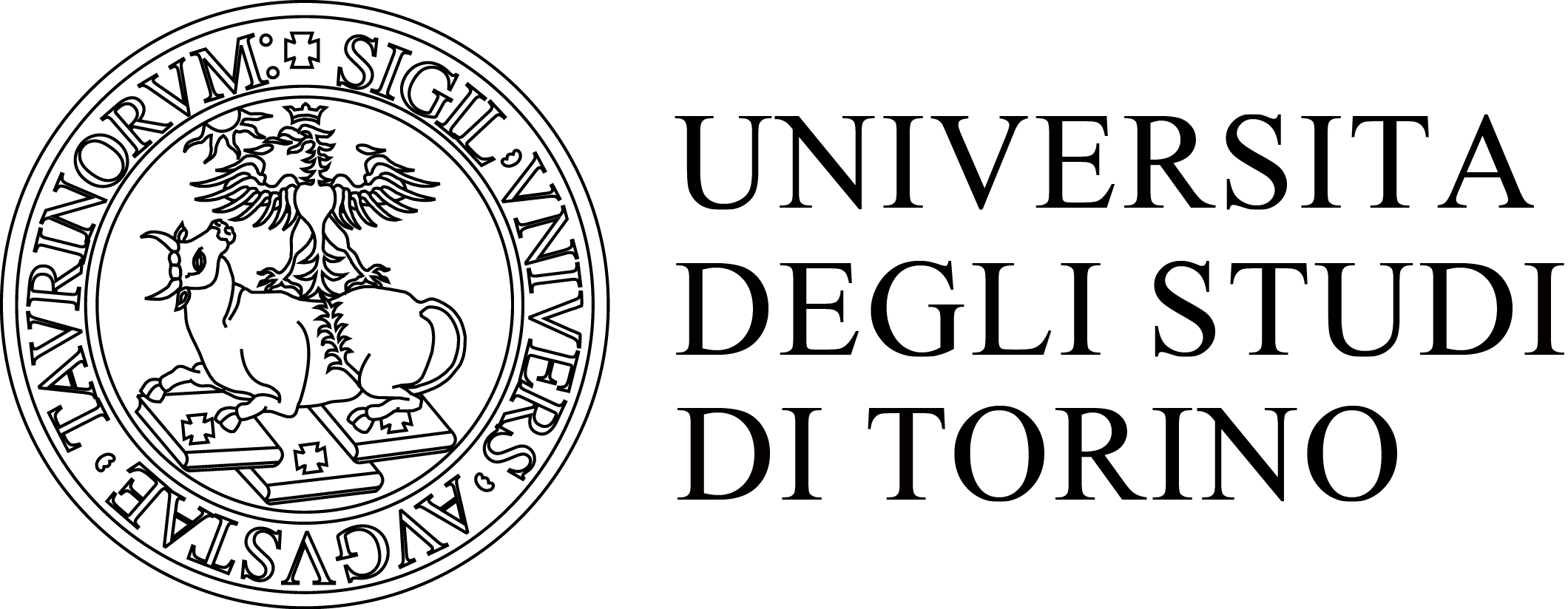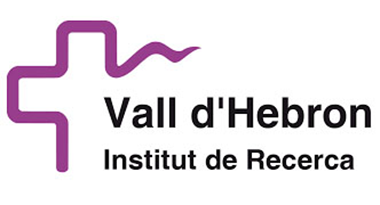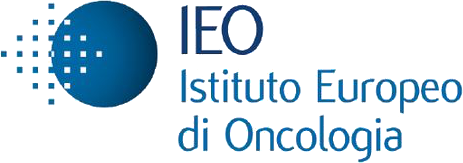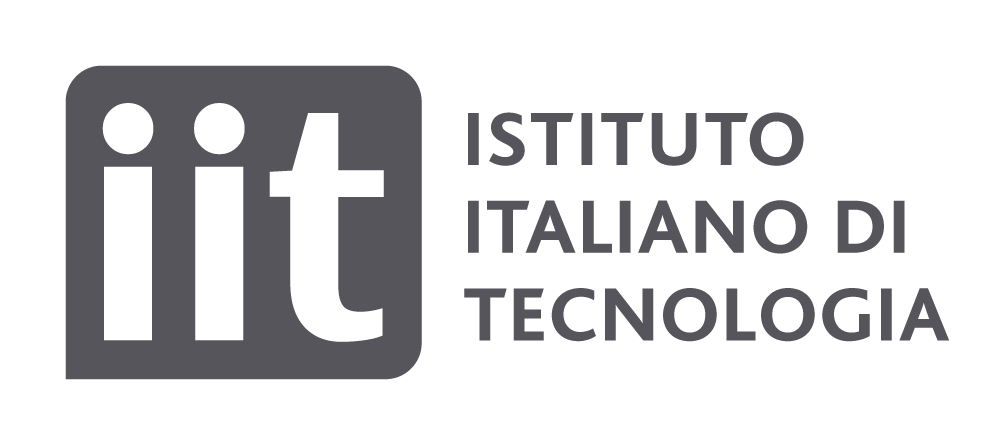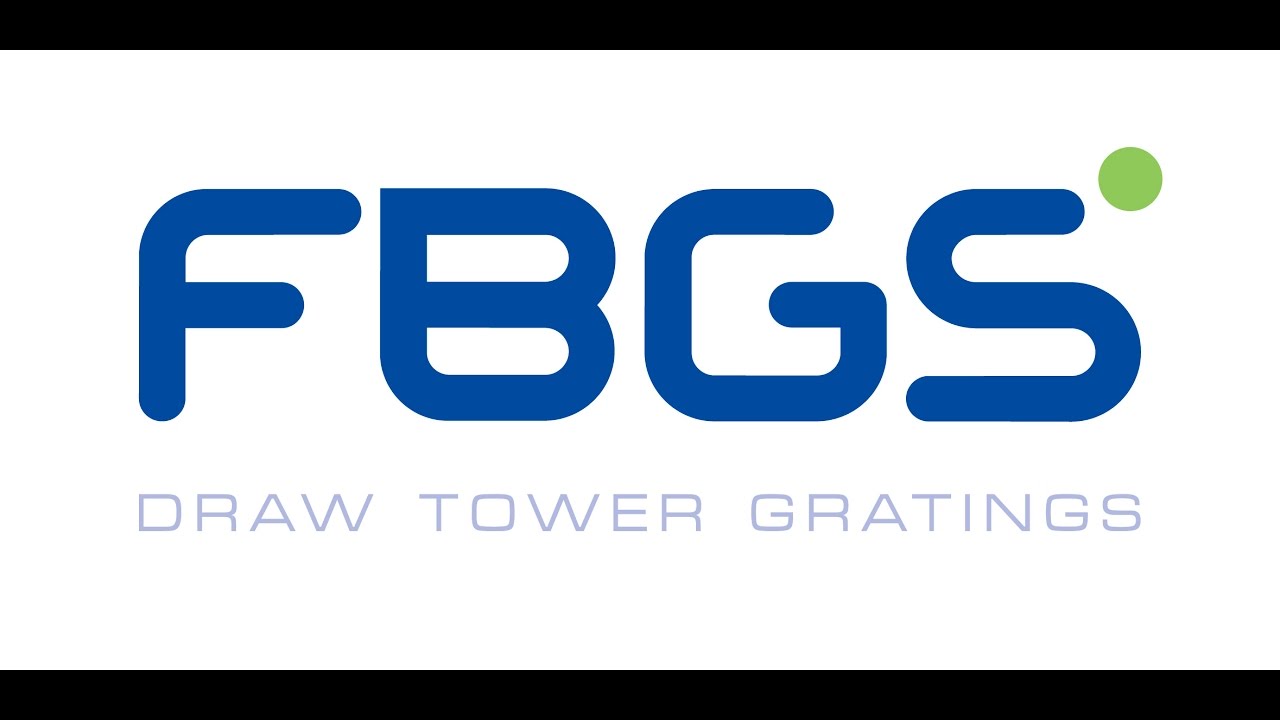Partner Organisations
ATLAS is helped by many partner organizations that helps in the research and development of the ESRs. Partners are either clinical centres, industries, or research facilities located in Europe.
Partners host ESRs for short period of time allowing them to acquire knowledge outside of the academia.
List of partners:
- Università di Torino (UNITO)
- Monzino Cardiology Center
- Research Institute against Digestive Cancer (IRCAD)
- Olv Robotic Surgery Institute (ORSI)
- Fundacio Hospital Universitari Vall D'hebron - Institut De Recerca (HVIR)
- The European Institute of Oncology (IEO)
- Institut National de Recherche en Informatique et Automatique (INRIA)
- Istituto Italiano di Tecnologia (IIT)
- Imperial College of Science, Technology and Medicine
- DEAM
- FBGS International
- Eye-Tech
- Camelot Biomedical Systems Srl
- Orobix Srl
- Center for Computer-Assisted Surgery
- AM2M Spolkaz Ograniczona odpowiedzialnoscia spolka komandytowa
University of Turin (UniTo) is one of the largest Italian Universities, with about 82.000 students, 6.1% of which of non-Italian citizenship, 3.900 employees (academic, administrative, and technical staff), 1.800 post-graduate and post-doctoral research fellows. UniTo manages roughly 500 projects per year, both at the national and international level. Its Department of Surgical Sciences (DSS) (UniTo – School of Medicine) accounts for 84 members belonging to all the different surgical disciplines, diagnostic and interventional radiology and anaesthesiology, orthopaedics and rehabilitation, rescue and intensive care, making it the largest department of surgical sciences in Italy. DSS is actively involved, inside the field of digestive endoscopy, in cutting-edge research projects, including robotic minimally-invasive-surgery, capsule endoscopy and magnetic actuation, to cite a few.
Key Persons and Expertise
Prof. Alberto Arezzo, Associate Professor at UniTO (Department of Surgical Sciences); General Surgeon essentially dedicated to diseases of the digestive system, with strong knowledge of traditional surgery, and particular dedication to minimally invasive surgery techniques and flexible digestive endoscopy. He studied and worked at the University of Tuebingen (Germany) before returning to Italy.
Monzino Cardiology Center IRCCS, known to most as Monzino, is the first hospital in Europe exclusively devoted to cardiac care with advanced therapies and innovative technologies. The Institute is accredited with the Lombardy Region in Italy and therefore offers hospitalization and outpatient services under the National Health Service regime. Moreover, Monzino is home to the SCCO Department - Cardiovascular Section, the degree course in Medicine and Surgery, the postgraduate schools in Cardiology and Cardiac Surgery and the degree course in Cardiocirculatory Physiopathology of the University of Milan.
Key Persons and Expertise
Prof. Giulio Pompilio (Cardiac Surgeon since 1996.,Scientific Director of Monzino Cardiology Center IRCCS since 2020., Associate Professor of Cardiac Surgery at University of Milan since 2015). He is known internationally as a pioneer in Italy in gene therapy for diseases of the peripheral arteries and for regenerative therapy with heart stem cells, he is the head of one of the most scientifically productive Regenerative Medicine laboratories in Europe. He is the author of 186 scientific publications that reach a total impact factor greater than 700. His clinical activity is equally intense: he has performed 1600 surgeries as the first operator, and manages the minimally invasive coronary surgery program.
Prof. Andreini Daniele (Director of Cardiovascular CT Unit and Radiology Unit of Monzino since 2012, Associate Professor of Cardiovascular Disease at University of Milan since 2019) Since 2001 he has been working in the Cardiovascular Imaging Area and since 2003 in the Critical Cardiology Area of the Monzino Cardiology Center. He is the author of over 120 scientific papers published in international journals with Impact factor, of which over 40 as first author.
The IRCAD institute was created in 1994 to develop and promote the surgery of the future - surgery that is technology-enabled, image-based and focuses on less invasive approaches for cost-effective care. Fully dedicated to research and to the teaching of the most innovative surgical techniques, over the years, the IRCAD has established itself as a world reference in the field of minimal access surgery.
Key Persons and Expertise:
Dr. Silvana Perretta is a consultant digestive, upper gastrointestinal surgeon. She is the director of Foregut Surgery and Advanced Gastrointestinal Endoscopy Division, and director of the Esophageal Motility Laboratory at the NHC University Hospital in Strasbourg, France. She serves also as the director of IRCADIHU education, director of the Business Engineering & Surgical Technologies (BEST) Innovation program since 2011 and of the IRCAD-IHU Surgical Endoscopy fellowship since 2014. Dr. Perretta was the recipient of the SAGES career development award in 2011.
Orsi Academy is a center for surgical innovation and expertise where industry, clinical and academic partners participate together on training, R&D and data analysis with the purpose of improving best practices in minimally invasive surgery. Established in 2010, it is now amongst the biggest training center in robotic surgery in the world, and planning to expand its expertise into other subspecialties in minimally invasive surgery. Validation and accreditation of our programs is a key differentiator.
Key Persons and Expertise:
Prof. Dr. Alexandre Mottrie, Professor and CEO of the Orsi Academy, is a urologist with special focus on urological oncology and robotic surgery. In 2001, he was one of the first to start with robot-assisted surgery, with a track record of over 3500 robotic procedures today. Being a pioneer in this field, he developed different important techniques and best practices that were adopted by colleagues all over the world. Under his impulse, the OLV Hospital evolved into a robotic center with over 650 robotic procedures per year. He is the Scientific Director of the ERUS-congresses and the Global Congresses on Prostate Cancer (Prosca) and the founding president of the EAU Robotic Urology Section (ERUS) and the past president of the Belgian Laparoscopic Urology Group (BLUG). He is also founding board member and past president of the Society of Robotic Surgeons (SRS). He is guest professor at the Universität des Saarlandes Homburg-Saar (Germany), the Global Robotic Institute Florida Hospital (Orlando, USA), the University of Ghent (Belgium) and the University of Leuven (Belgium).
University Hospital Vall d'Hebron is part of the Autonoma University of Barcelona and the largest hospital in Barcelona and Catalonia. It has large expertise in all areas of patient care as well as in research, with high impact factor in both basic and clinical research. The Gynaecology Department has a large experience in minimally invasive surgery, laparoscopic and robotic approach. Regarding robotic surgery, our experience in gynecological surgery started in June 2009, being one of the first and most specialized centers in Spain to perform basic and complex gynecological surgery. Since 2015 it has the European Society of Gynecological Oncology (ESGO) accreditation in Fellow training.
Key Persons and Expertise:
Prof. Oriol Puig. General Surgeon since 1987, collaborates with service gynaecology of the Hospital Vall d'Hebron in Barcelona since 1995. Since 2009 he carries out assisted laparoscopic surgery with Da Vinci robot.
Prof. Antonio Gil. Head of Service of Gynecology, Hospital Materno-Infantil Vall d'Hebron in Barcelona, Gynecologic Oncology Unit, since 1995. Professor of Gynecology and Obstetrics at the Autonoma University of Barcelona since 2010 and accredited by ANECA.
The European Institute of Oncology is a non-profit private-law comprehensive cancer research centre located in Milan, Italy. The Institute integrates various activities involved in the fight against cancer: prevention and diagnosis, health education and surgical training, research and treatment.
Key Persons and Expertise:
Prof. Ottavio de Cobelli is Associate Professor of Urology at University of Milan, Director of the Division of Urology from 1998 to present and Chair of the P.U.R.E. (Prostate Urogenital Research Excellence) Program at IEO from 2014 to present. He conducts its activities and surgical clinic at the European Institute of Oncology in Milan concerned with the treatment of cancer urology, prostate, bladder, kidney, testis and Penis and has performed as I° in operation since 1998 to date more than 5000 Surgery, of which 60% of robotic surgery.
Inria, the French National Institute for computer science and applied mathematics, promotes “scientific excellence for technology transfer and society”. Graduates from the world’s top universities, Inria’s 2,700 employees rise to the challenges of digital sciences. Research at Inria is organized in “project teams” which bring together researchers with complementary skills to focus on specific scientific projects. The team Defrost, located in Lille, focus its research on the new software for deformable robotics. The goal of the team is to address the challenges related to modeling, simulation and control of deformable robots.
Key Persons and Expertise:
C.Duriez, INRIA Research Director, is specialist of surgical simulation and physics based simulation and control of deformable robots.
The IIT is a Research Foundation with a focus on 4 key technological platforms: Life Sciences, Nanotechnologies, Computer Vision, and Robotics. The latter includes medical, surgical, rehabilitation, and assistive robotics. The Department of Advanced Robotics of the IIT was the coordinator of the EU-funded project μRALP and participated to the projects ACTIVE and STIFF-FLOP, all of which are dedicated to robotic surgery.
Key Persons and Expertise:
Dr. Darwin G. Caldwell is Director of the Advanced Robotics Dept. at the IIT, a Fellow of the Royal Academy of Engineering, and a Visiting/Honorary Professor at the Universities of Sheffield, Manchester, Wales (Bangor) and King’s college London. His research background includes innovative actuators and sensors, haptic feedback, force augmentation exoskeletons, dexterous manipulators, biomimetic systems, rehabilitation robotics, telepresence and teleoperation procedures, medical robotics. He is/was involved in several European projects in robotics.
Dr. Brian Davies is an Emeritus Professor of Medical Robotics at ICL, where he has been since 1983, and is also a senior research investigator there. Since 2006 he has been advising on Medical Robots, particularly the μRALP project, for the Advanced Robotics Group of the IIT in Genoa. He has a PhD in Medical Robotics and was awarded a DSc. in 2001 for his international contribution to Robotic and Computer Aided Surgery systems. He was made a Fellow of the Royal Academy of Engineering in 2005. He developed the world's first special-purpose surgical robot called PROBOT. He Participates in the EU medical robotics project ACTIVE and its predecessor ROBOCAST, and is a regular reviewer for EU FP7 projects.
Imperial College of Science, Technology and Medicine Was established in 1907 in London’s scientific and cultural heartland in South Kensington. Consistently rated amongst the world's best universities, it is a university of world-class scholarship, education and research in science, engineering and medicine, with particular regard to their application in industry, commerce and healthcare.
DEAM develops, manufactures and sells instruments for minimally invasive interventions and diagnostic procedures. These are executed on tissue in the body cavities through small holes in the skin (keyhole surgery and catheter interventions) or through the natural orifices (gastrointestinal tract and lungs).
Key Persons and Expertise:
Dr.ir. J.S. Scheltes CTO of DEAM, expertise on research and development of steerable medical devices. Knowledge on patent literature in this field. Quality Assurance manager.
FBGS International NV/FBGS Technologies GmbH is a Belgium / Germany based developer and manufacturer of high strength Fiber Bragg Gratings (FBG) during fiber drawing or using femtosecond based inscription technologies. These automated processes result in very high quality, cost effective Fiber Bragg Gratings with unique characteristics. FBGS' products are suitable for both standard and bespoke applications in industries such as: medical, composite, transport, process, civil & geo, telecom and R&D. Besides the FBG’s, FBGS also offers complete sensors and measurement devices.
Key Persons and Expertise:
Dr. Johan Vlekken (°1971) graduated as a Master in Physics in 1993 at the K.U.Leuven and received his PhD in Applied Sciences in 1998 at the Institute for Materials Research (UHasselt) and holds a post-academic degree in Business Management. In March 2001, Johan joined I.D. FOS Research as project manager. When in 2003 the activities of I.D. FOS Research where transferred to FOS&S, he was promoted to Chief Technology Officer of FOS&S and became responsible for all R&D activities, the execution of the commercial projects and the production activities. In 2011 Johan joined FBGS International where he is active today as CTO and involved in the R&D as well as the business development activities. Johan is author/co-author of +50 publications published in international journals and conference proceedings. Furthermore, he is co-inventor of 4 patents.
EYE-TECH’s core business is the design, development and commercialization of CMOS image sensors. Besides sensor products, EYE-TECH offers a consultancy service for the development of custom sensors and to support customers in the development of complete vision systems based on EYE-TECH imagers. EYETECH’s strategy is to produce highly innovative solutions to the market providing each time unique performance in well-defined applications, with a special focus on the biomedical market. The main technological features of EYE-TECH sensors are: Innovative features: Optimized performances in light controlled environment with high dynamic range capability; Implementation features: Data transmission optimized for high distance or wireless applications; Distinctive features: Optimal format and positioning of the sensitive area. The ten-year experience of EYE-TECH founders in the field of CMOS imagers and vision system design, was the starting point for the conceive of application oriented products. The innovative features of EYE-TECH products are patented.
Key Persons and Expertise:
Dr. Monica Vatteroni is research and development manager in EYE-TECH, she takes care of the development of EYE-TECH CMOS image sensors from the concept to the preliminary characterization. Previous experience are both in academic and industrial environments. She has been Postdoc at the University Claude Bernard in Lion, developing biosensors within a Marie Curie Project (2015, 2016). She has been with the Biorobotics Institute of Scuola Superiore Sant'Anna (2008-2015) as responsible for the R&D of image sensors, vision systems and sensorized platforms focused on biomedical applications. In the same period, she worked as consultant for companies like Eurotech and ST Microelectronics. She is author and co-author of over 30 peer reviewed journal and conference publications and holder of 8 patents.
Dr. Carmela Cavallotti is Product Development Manager in EYE-TECH. Between 2012 and 2016 she was PostDoc at the Biorobotics Institute of Scuola Superiore Sant'Anna, involved in the development of smart and innovative electronic systems. One of her main research focus is in the field of system integration with beyond the state of the art techniques.She obtained the PhD in BioRobotics at Scuola Superiore Sant’Anna in 2012. She co-authored 7 ISI journal papers and 2 patents.
CAMELOT is a research-intensive SME focused on the development of innovative software products based on Artificial Intelligence, to make autonomous systems reliable and support them improving our lives. The core strengths of CAMELOT solutions have always been their high-grade flexibility, reliability and efficiency, achieved using innovative, proprietary computational techniques based on State of the Art computer vision, machine learning and optimization theory.
Key Persons and Expertise:
M. Santoro, CEO. Previous research experiences in Italy and North America, including a postdoctoral fellow at MIT, Cambridge, MA, US. His recent research focused on theory and algorithms for machine learning and medical image analysis. C. Basso, CTO. Previous research fellowship at CS Dept. of the University of Genoa, Italy, worked on analysis of medical images and the extraction of imaging biomarkers.
A. Schiappacasse, Project Manager. Currently enrolled in a PhD program in Biomedical Engineering at the University of Genoa, working on computer vision and real-time image fusion applied to surgical robotics
General Description: Orobix is an engineering SME focused on machine learning, image analysis, computational geometry, mathematical modeling and software engineering. It was founded in 2009 with a solid background on medical image analysis and modeling for biomedical applications. It currently provides its services to various sectors, including healthcare, pharma, manufacturing and energy & environment. Orobix is a ISO 9001 and 13485 certified company.
Key Persons and Expertise: Dr Luca Antiga is CEO at Orobix. He received his PhD in Bioengineering from Politecnico di Milano in 2002 and has worked in research until 2009. He co-authored over 50 peer-reviewed journal publications, he has lead the development of the open source Vascular Modeling Toolkit and he is currently in the developer team for PyTorch, a leading deep learning framework. He has supervised multiple PhD and MSc students, including a Marie Curie fellow (as part of the REVAMMAD project).
The mission of EndoCAS (Università di Pisa) is to develop breakthrough technologies based on engineering and information technologies to improve the current surgical procedures and reduce their invasiveness by means of an optimal use of medical imaging. The research areas addressed by the Centre are:
- Surgical navigation systems for traditional and robotics interventions;
- Surgical simulators development and validation;
- Augmented reality displays and applications;
Key Persons and Expertise: Prof. Mauro Ferrari (Director, Vascular Surgeon);
Vincenzo Ferrari Phd (Scientific coordinator, Computer Science Engineer)
AM2M Limited Liability Company Limited Partnership (A2M) is a company established by scientists associated with Nicolaus Copernicus University in Torun (NCU), Poland in 2011. AM2M offers professional R&D service, provides ambitious solutions in the field of non-invasive imaging, beyond actual state-of-the art. Apart from R&D service AM2M is also working on their own projects. In 2013 AM2M was acknowledged to be Innovation Leader of Kuyavia and Pomerania in microenterprise category for R&D service in biomedical imaging for industry.
Key Persons and Expertise:
Dr. Anna Szkulmowska, expert in R&D management (cofounder, CEO) Her research is strictly related to R&D with industrial impact. She was one of two constructors of the clinical prototype of Fourier domain OCT diagnostic tool, that became the first commercially available Foruier domain OCT device (Copernicus, Optopol Technology). She is a co-author of >40 papers (h-index 11), 2 patent (USA, Japan) and 3 more patent application (EPO). Ph.D in physics (2009). She successfully run the faculty foundation (The Faculty of Physics, Astronomy and Informatics, NCU) and in 2011 cofounded AM2M. In 2012 Szkulmowska completed the professional development program in the field of Science Management and Commercialization carried at Stanford University, CA, USA. She is a member of the program Top 500 Innovators initiated by Polish Ministry of Science and Higher Education.
Dr. hab. Maciej Szkulmowski, expert in applied computer science and non-invasive imaging (cofounder) He holds broad expertise in developing methods enhancing the quality of images obtained by Spectral OCT. He was given recognition given by Foundation for Polish Science and by the Polish Ministry of Science and Higher Education. He is coauthor of 2 granted patents and next 8 patent applications.

